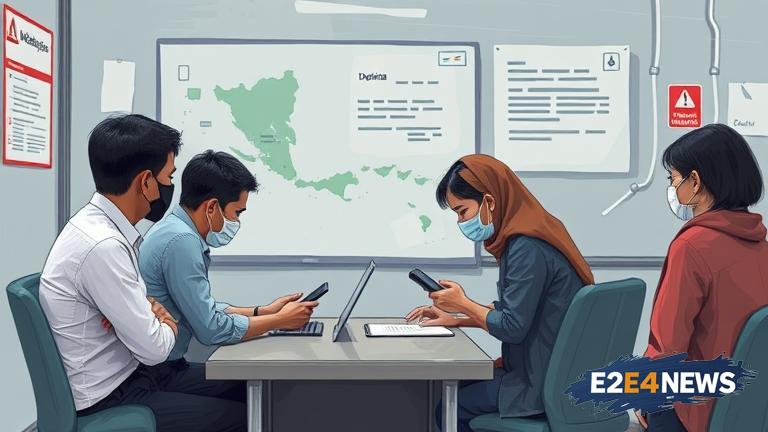The Indonesian government has announced plans to expand its population services, with a focus on biometric enrollment. The initiative aims to improve the efficiency and accuracy of population data collection, as well as enhance national security. To support this effort, the government is seeking vendors to provide biometric enrollment services. The selected vendors will be responsible for collecting and processing biometric data, including fingerprints, facial recognition, and iris scans. The data will be used to create a comprehensive database of the Indonesian population, which will be used for various purposes, including identity verification, border control, and social services. The biometric enrollment process is expected to be implemented in phases, with the first phase focusing on the registration of citizens. The government has set a target of enrolling at least 80% of the population in the first year. The biometric enrollment initiative is part of a broader effort to modernize Indonesia’s population management system. The government believes that the use of biometric technology will help to reduce errors and inconsistencies in population data, as well as prevent identity theft and fraud. The initiative has been welcomed by experts, who believe that it will have a positive impact on national security and economic development. However, some concerns have been raised about the potential risks associated with the collection and storage of biometric data. The government has assured citizens that their data will be protected and used only for authorized purposes. The biometric enrollment initiative is expected to create new opportunities for vendors and service providers in the biometric technology sector. The Indonesian government has announced that it will provide funding and support for the initiative, including training and capacity-building programs for officials and vendors. The initiative is also expected to have a positive impact on the country’s economy, as it will help to improve the efficiency and effectiveness of population services. The use of biometric technology is becoming increasingly popular in Indonesia, with several government agencies and private companies already using it for various purposes. The biometric enrollment initiative is expected to be implemented in partnership with international organizations and donors, who will provide technical assistance and funding support. The government has announced that it will establish a national biometric database, which will be used to store and manage biometric data. The database will be managed by a specialized agency, which will be responsible for ensuring the security and integrity of the data. The biometric enrollment initiative is a significant development in Indonesia’s efforts to modernize its population management system. It is expected to have a positive impact on national security, economic development, and social services. The initiative is also expected to create new opportunities for vendors and service providers in the biometric technology sector. The Indonesian government is committed to ensuring that the initiative is implemented in a transparent and accountable manner, with adequate safeguards to protect citizens’ rights and privacy. The biometric enrollment initiative is a major step forward in Indonesia’s efforts to become a more modern and efficient country. It is expected to have a positive impact on the country’s development and prosperity, and to contribute to the well-being of its citizens.
